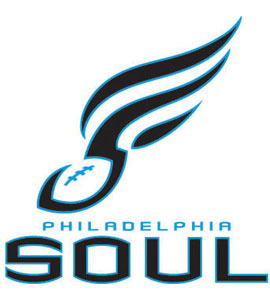COLLINS AND WISNIEWSKI ON BALLOT FOR THE 2016 COLLEGE FOOTBALL HALL OF FAME
admin
 Collins helped Penn State earn a 40-9 record from 1991-94.
Collins helped Penn State earn a 40-9 record from 1991-94.UNIVERSITY PARK, Pa.; June 2, 2015 – A pair of standouts who were instrumental in helping Penn State post undefeated and championship seasons are among the candidates under consideration for the National Football Foundation’s College Hall of Fame.
First-team All-Americans Kerry Collins and Steve Wisniewski have been selected for the national ballot for the Hall of Fame’s Class of 2016. They have an opportunity to join 18 former Nittany Lion players and five Penn State coaches who have been inducted into the Hall.
Also on the Hall of Fame ballot are former Nittany Lions Bill Bowes and Glenn Killinger, who are candidates for the divisional coach Class of 2016. Killinger was inducted into the Hall of Fame as a player in 1966.
Linebacker Shane Conlan was inducted into the Hall in 2014 and running back Curt Warner was enshrined in the Hall of Fame in 2010. Late head coach Joe Paterno was inducted in 2007. They are Penn State’s most recent Hall of Fame inductees.
The 2016 College Football Hall of Fame Class will be announced on January 8, 2016 in Scottsdale, Arizona in conjunction with the College Football Playoff. Irving, Texas. The class will be inducted at the 59th NFF Annual Awards Dinner Dec. 6, 2016 at the Waldorf Astoria Hotel in New York City. The inductees will be permanently enshrined in the College Football Hall of Fame in Atlanta.
A total of 76 players and five coaches from the Football Bowl Subdivision are on the 2016 ballot.
Collins helped Penn State earn a 40-9 record from 1991-94 and was instrumental in the Nittany Lions earning a 22-2 overall mark (14-2 conference) during their first two years in the Big Ten Conference. The recipient of the 1994 Maxwell Award as the National Player of the Year, he helped Paterno’s team win three New Year’s Day bowl games: the 1992 Fiesta, 1994 Citrus and 1995 Rose Bowls.
From Wilson High School, Collins started every game in leading Penn State to the 1994 Big Ten Championship in its second year in the conference. The Nittany Lions defeated Oregon, 38-20, in the 1995 Rose Bowl to become the first Big Ten team to earn a 12-0 record, earning the No. 2 final ranking by AP, UPI and USA Today/CNN. Penn State was ranked No. 1 by the New York Times and in the Sagarin computer rankings at the end of the 1994 season.
A consensus first-team All-American, Collins directed one of most prolific and balanced offenses in NCAA and Big Ten history in 1994. The Nittany Lions led the nation in scoring (47.8 ppg) and total offense (520.2 ypg) and also led the Big Ten in rushing (250.9; 6th nationally) and passing offense (269.3 ypg; 12th nationally). The 1994 offense broke 14 school season records and seven Big Ten season marks for: points scored (526), touchdowns (71), points per game for all games (47.8 ppg), points per game for conference games (48.1 ppg), total offense (5,722 yards), total offense per game (520.2 ypg) and yards gained per play (7.64 ypp). All seven also were Penn State season records (bowl game statistics did not count in season stats).
Recipient of the 1994 Chicago Tribune-Big Ten Silver Football (Big Ten MVP), Collins was 176-of-274 (66.7) for 2,679 yards, with 21 touchdown passes and seven interceptions during his senior season (regular season games). He broke Penn State season records for completions (176), passing yardage (2,679), completion percentage (66.7, 176 of 264), pass efficiency (172.86), yards per pass attempt (10.15 ypa), touchdown passes in consecutive games (all 11 regular season games), consecutive passes completed (14 at Minnesota en route to 19 of 23, 260 yds., 3 TD), 200-yard passing games (9 of 11) and total offense (2,660). His 21 touchdown passes were one off the school season record.
The Davey O’Brien National Quarterback Award recipient, Collins led the Big Ten in passing yardage, passing efficiency and total offense in 1994. His 172.86 pass efficiency rating was No. 4 all-time after the 1994 season and still ranks No. 3 in a season in Big Ten history.
In addition to winning the 1994 Maxwell and O’Brien Awards, Collins was fourth in Heisman Trophy voting (teammate Ki-Jana Carter was second). He also was the Chevrolet Offensive Player of the Year, the United Press International Back of the Year, a finalist for the Walter Camp Player of the Year and was the Big Ten Offensive Player of the Year and first-team All-Big Ten.
As a junior in 1993, he started the last nine games and led Penn State to wins in its last five games (three over ranked teams) to finish 10-2. The Nittany Lions defeated No. 8 Tennessee, 31-13, in the Citrus Bowl and earned final No. 8 ranking by AP to set the table for a sensational 1994 for Collins and Penn State. He finished his career 370 of 657 passing for 5,304 yards, with 39 touchdown passes and 21 interceptions. Collins had a career long completion of 82 yards during his senior season.
The expansion Carolina Panthers selected Collins with the No. 5 overall pick in the first round of 1995 NFL Draft to launch a prolific 17-year NFL career. Collins played with Carolina (1995-98), New Orleans Saints (1998), New York Giants (1999-03), Oakland Raiders (2004-05), Tennessee Titans (2006-10) and the Indianapolis Colts (2011) before retiring. A two-time Pro Bowl selection, he led three different NFL teams to division championships and defeated 31 of 31 NFL teams at least once in his career.
Collins ranks in the top 12 in NFL history in career pass completions (11th, 3,487), pass attempts (11th, 6,261) and passing yards (12th, 40,922).
Collins has been one of the NFL’s most charitable current or former players since starting his professional career in 1995. He has donated more than $2 million to a variety of charitable organizations, including the NYU Rusk Institute of Rehabilitation, the K.C. For Kids Fund within the Kerry Collins Foundation, the Ladder5/Engine 24 Family Relief Fund and the American Red Cross Hurricane Katrina Relief Fund. He also endowed the Penn State quarterback position with a gift of $250,000.
Wisniewski was a three-year starter at guard for the Nittany Lions who would go on to become an All-Pro lineman in the NFL. He was one of two sophomores to start on the 1986 National Championship team and he opened holes for two first-team All-America running backs, Blair Thomas (1987) and Dozier (1986). One of just four Penn State offensive linemen to earn a pair of first-team All-America honors, he was recognized in 1988 by the American Football Coaches (AFCA) and repeated All-America accolades from Sporting News. A 1988 team captain, Wisniewski is one of just two offensive linemen to earn Penn State’s team MVP honor since its creation in 1978.
From Westfield High School in Houston, Wisniewski was the first pick in the second round of the 1989 NFL Draft by the Dallas Cowboys, who immediately traded his rights to the Los Angeles Raiders. Wisniewski was a mainstay for the Raiders from 1989-2001, starting the final 175 games of his career. He was selected to the Pro Bowl eight times, with six first team All-Pro selections. He was elected a Raiders team captain seven times, was named to the NFL’s All-Decade Team for the 1990’s and to Oakland’s 50-Year All-Raider Team. Wisniewski missed only two of a possible 208 career games.
Wisniewski’s older brother, Leo, was a standout defensive lineman for the Nittany Lions from 1979-81. A nephew, Stefen, was a three-year starter on Penn State’s offensive line, earning first-team All-America honors in 2010. He became the first Nittany Lion to earn Academic All-America honors three times and was selected by the Raiders in the second round of the 2011 NFL Draft. Stefen Wisniewski was a four-year starter with Oakland and signed with the Jacksonville Jaguars earlier this spring.
From Blanchard, Pennsylvania, Bowes was an end and lettered from 1962-64 under head coach Rip Engle. He was captain of the 1964 Penn State team that finished 6-4, including a stunning 27-0 win at No. 2 Ohio State. Bowes was the head coach at the University of New Hampshire from 1972-98, winning more games than any coach in Yankee Conference history and 11 conference titles.
From Harrisburg, Killinger was a Walter Camp All-American at quarterback for the Nittany Lions in 1921. He coached at Dickinson (1922), Rensselaer (1927-32), Moravian (1933) and West Chester (1934-41, 45-59). Killinger is the winningest coach in West Chester history and is a member of the Pennsylvania Sports Hall of Fame. He died in 1988.
To be eligible for the Hall of Fame ballot, players must have been named a first-team All-America by a major/national selector as recognized and utilized by the NCAA for their consensus All-America teams; played their last year of intercollegiate football at least 10 years prior to nomination; played within the last 50 years and cannot be currently playing professional football. Once nominated for consideration, all player candidates are submitted to one of eight District Screening Committees, which conducts a vote to determine who will appear on the ballot and represent their respective districts.












